
Crafting
Futures Workshop
The Crafting Futures Workshop hosted by Kairos Futura brought together artists and designers to explore potential futures. Using speculative design and design fiction as primary tools, we dove deep into experimental material crafting techniques and innovative pattern cutting to unlock new ways of articulating future narratives, reimagining how garments might tell stories of environmental, social, and technological change.
PROJECT SPECULATIVE DESIGN WORKSHOP
SECTOR DESIGN & FUTURING
ORGANISATION IN COLLABORATION WITH KAIROS FUTURA
ROLE DESIGNING WORKSHOP | WORKSHOP FACILITATION
WORKSHOP DURATION 1 WEEK
KEY METHODOLOGIES & TOOLS
SPECULATIVE DESIGN | DESIGN FICTION | STEEP FRAMEWORK | CRAFTING MATERIAL | GARMENT PRODUCTION
SECTOR DESIGN & FUTURING
ORGANISATION IN COLLABORATION WITH KAIROS FUTURA
ROLE DESIGNING WORKSHOP | WORKSHOP FACILITATION
WORKSHOP DURATION 1 WEEK
KEY METHODOLOGIES & TOOLS
SPECULATIVE DESIGN | DESIGN FICTION | STEEP FRAMEWORK | CRAFTING MATERIAL | GARMENT PRODUCTION






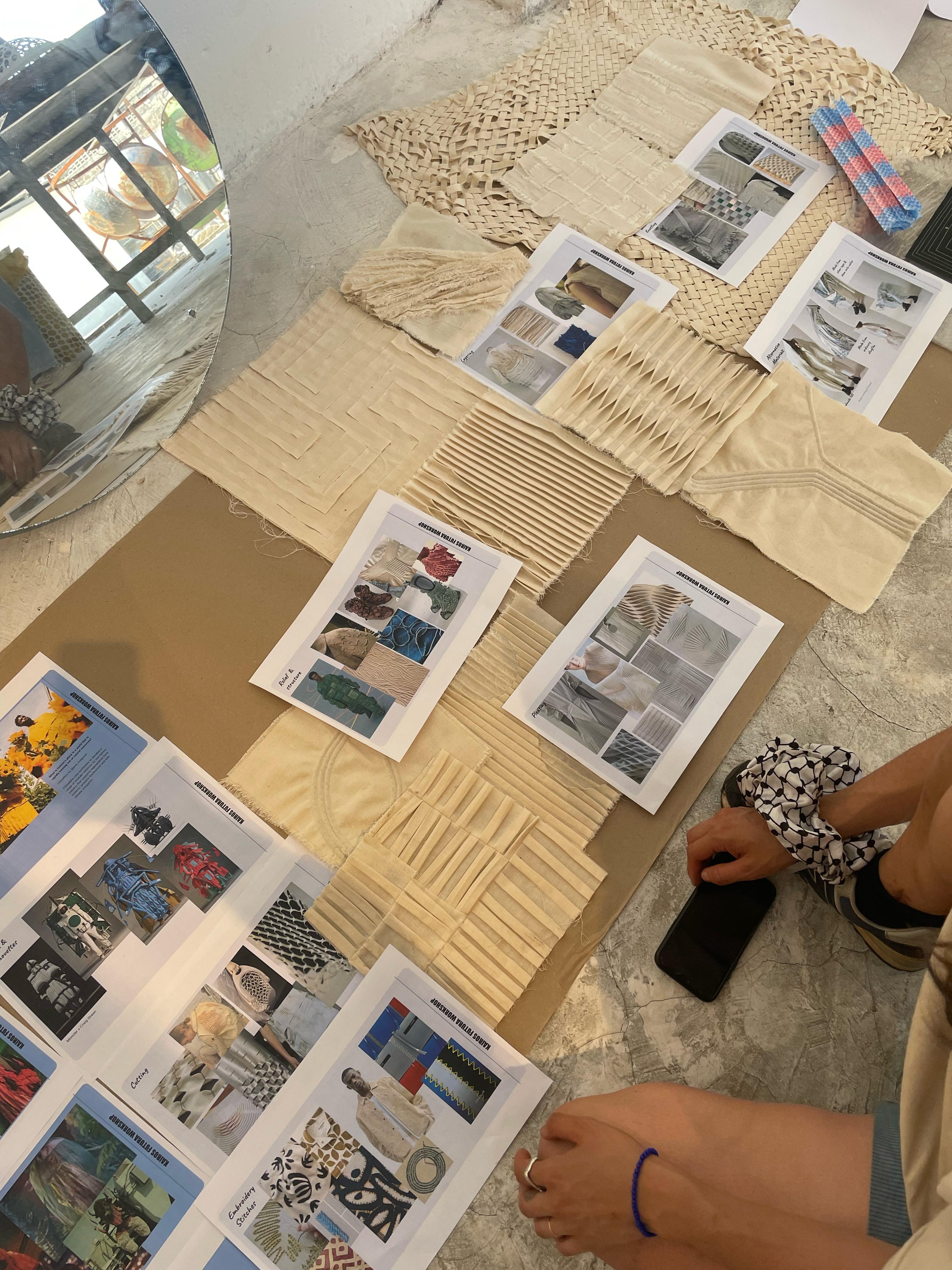



01︎
What is Speculative Design?
Designers were introduced to speculative design as a powerful tool for envisioning possible futures and exploring their potential implications. This foundational step established understanding of speculative design methodology and its role in exploring alternative futures rather than just solving current problems.
︎02
Mapping Nairobi 2050
Using the STEEP framework (Social, Technological, Economic, Environmental, Political), participants explored four distinctive environmental scenarios for Nairobi in 2050. This exercise created concrete, multi-dimensional future contexts that would serve as the foundation for design exploration, ensuring designs respond to realistic complex challenges.
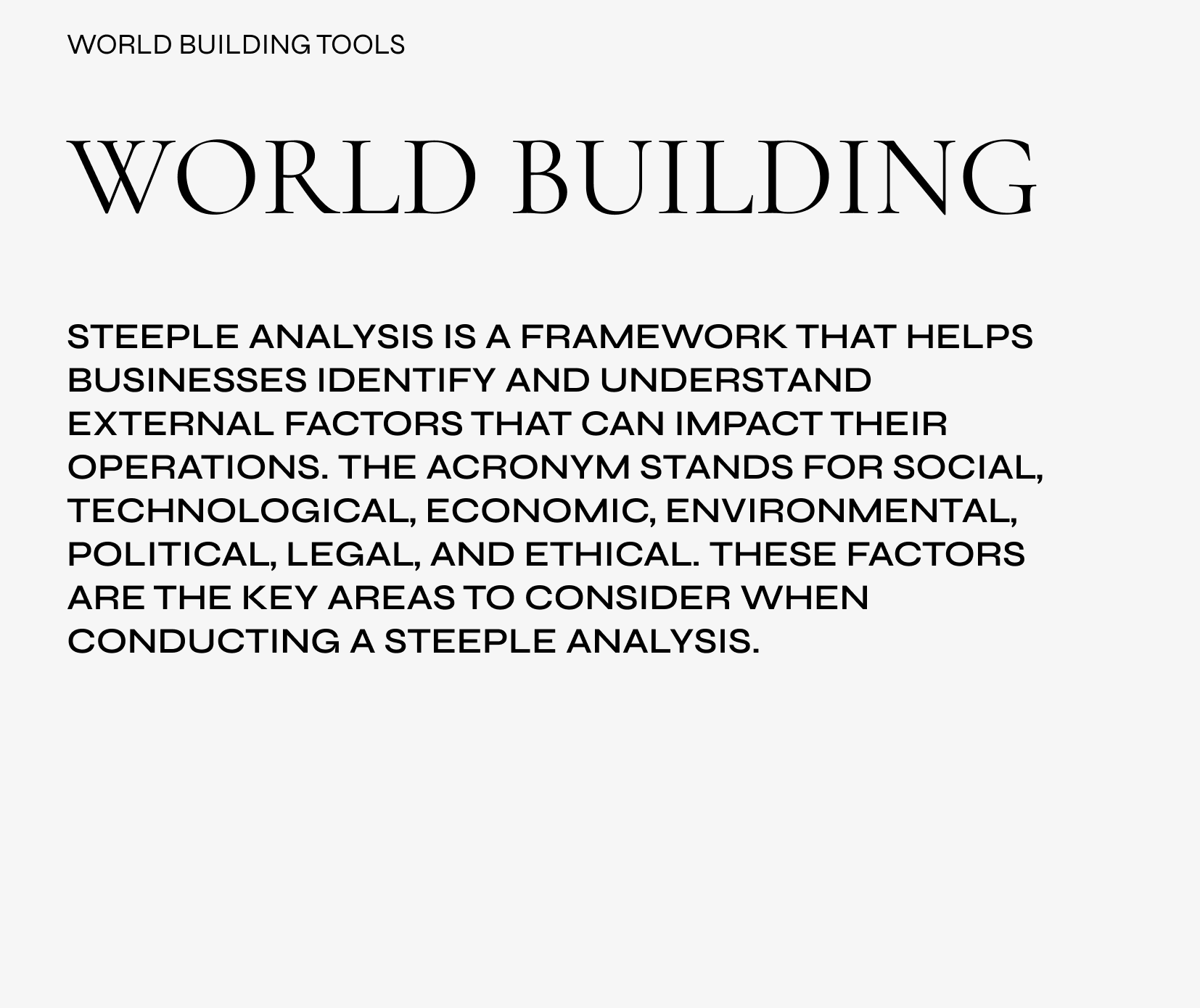





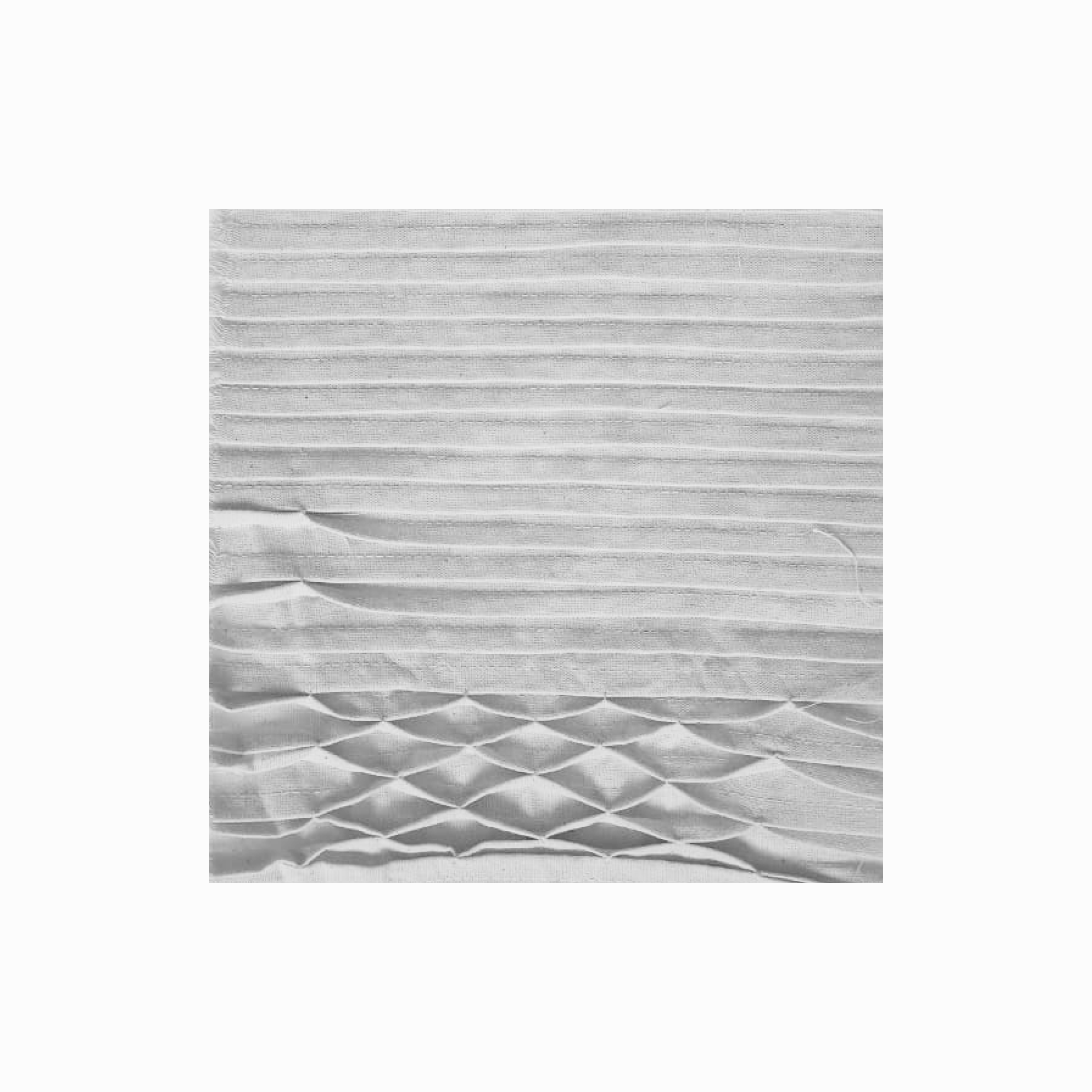
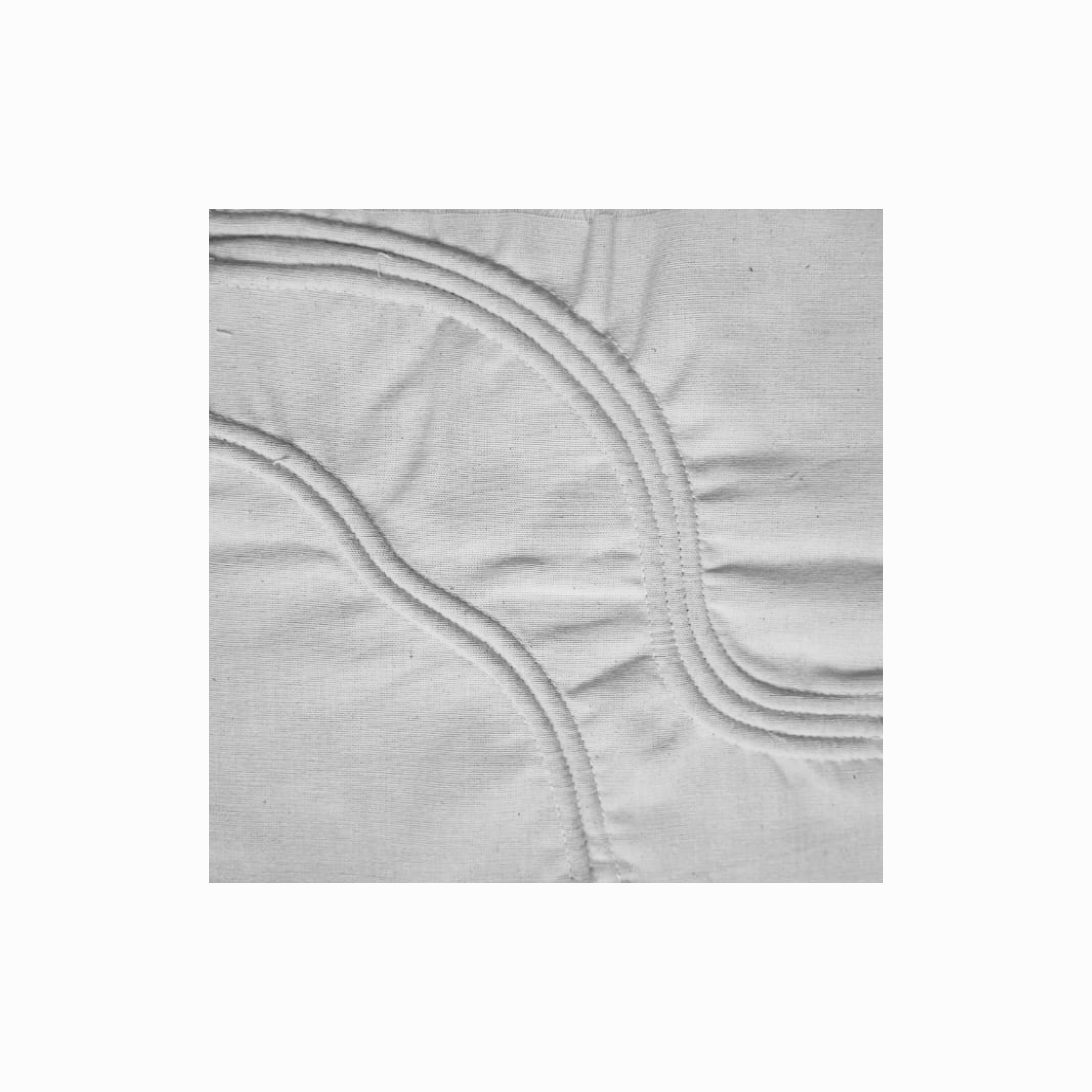
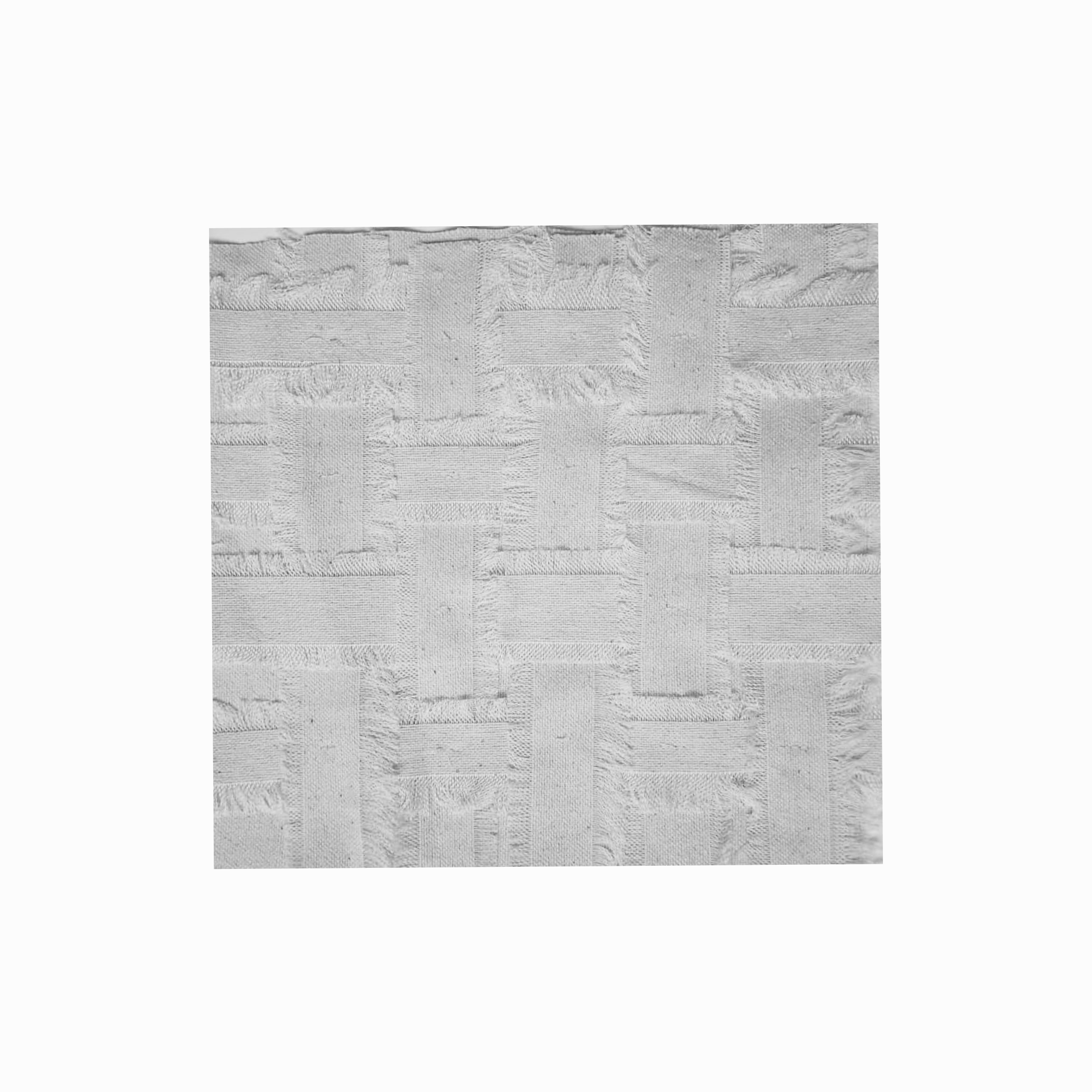
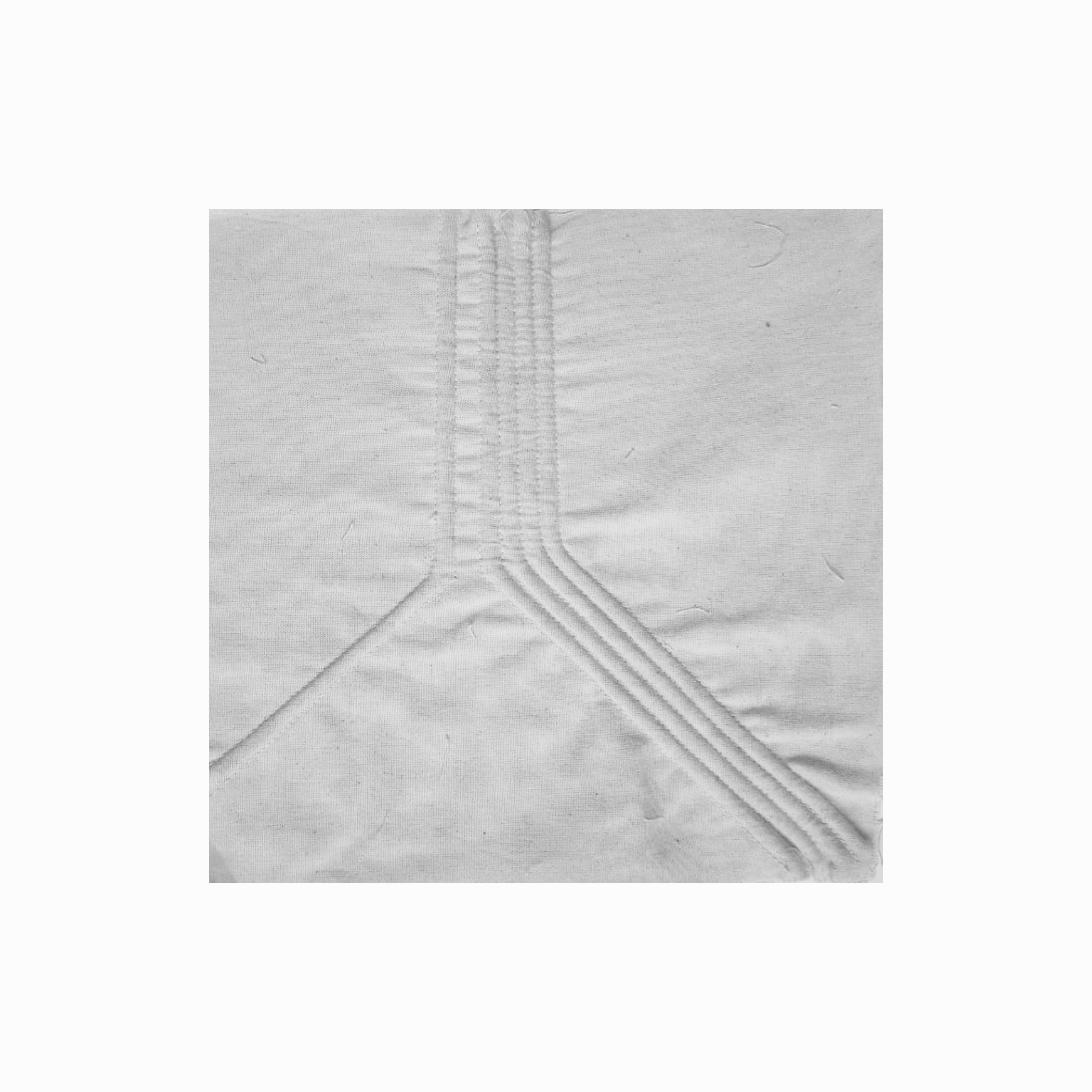
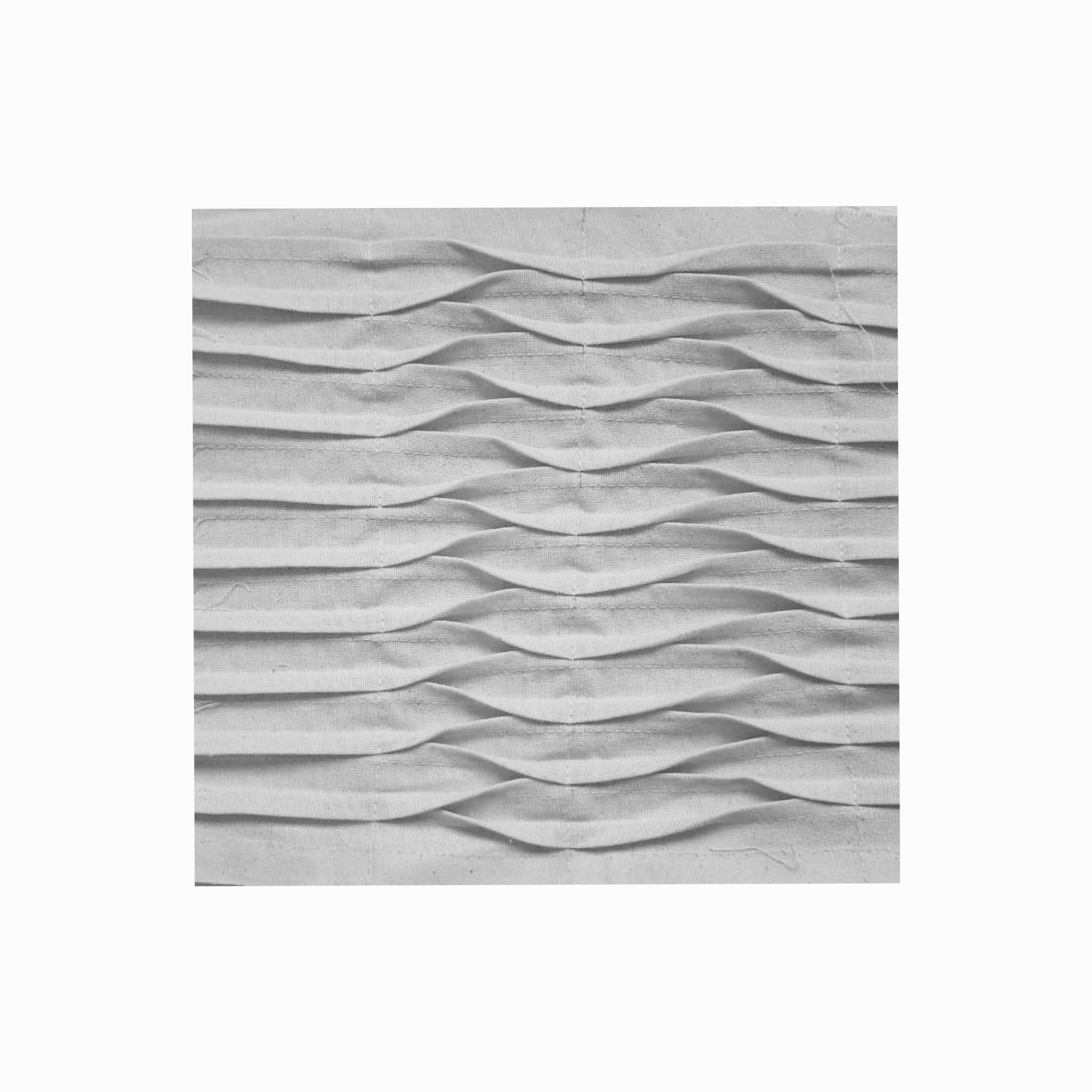
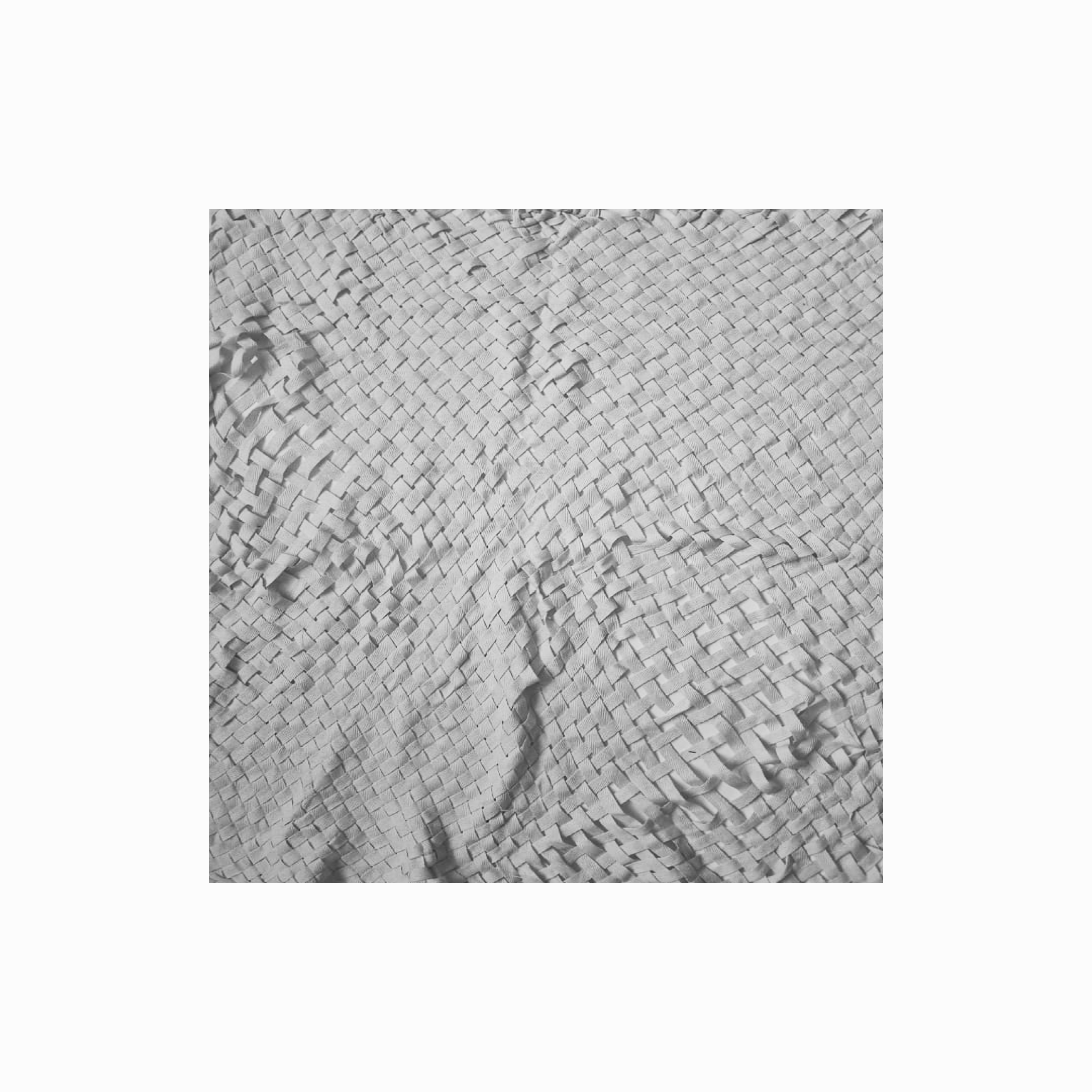
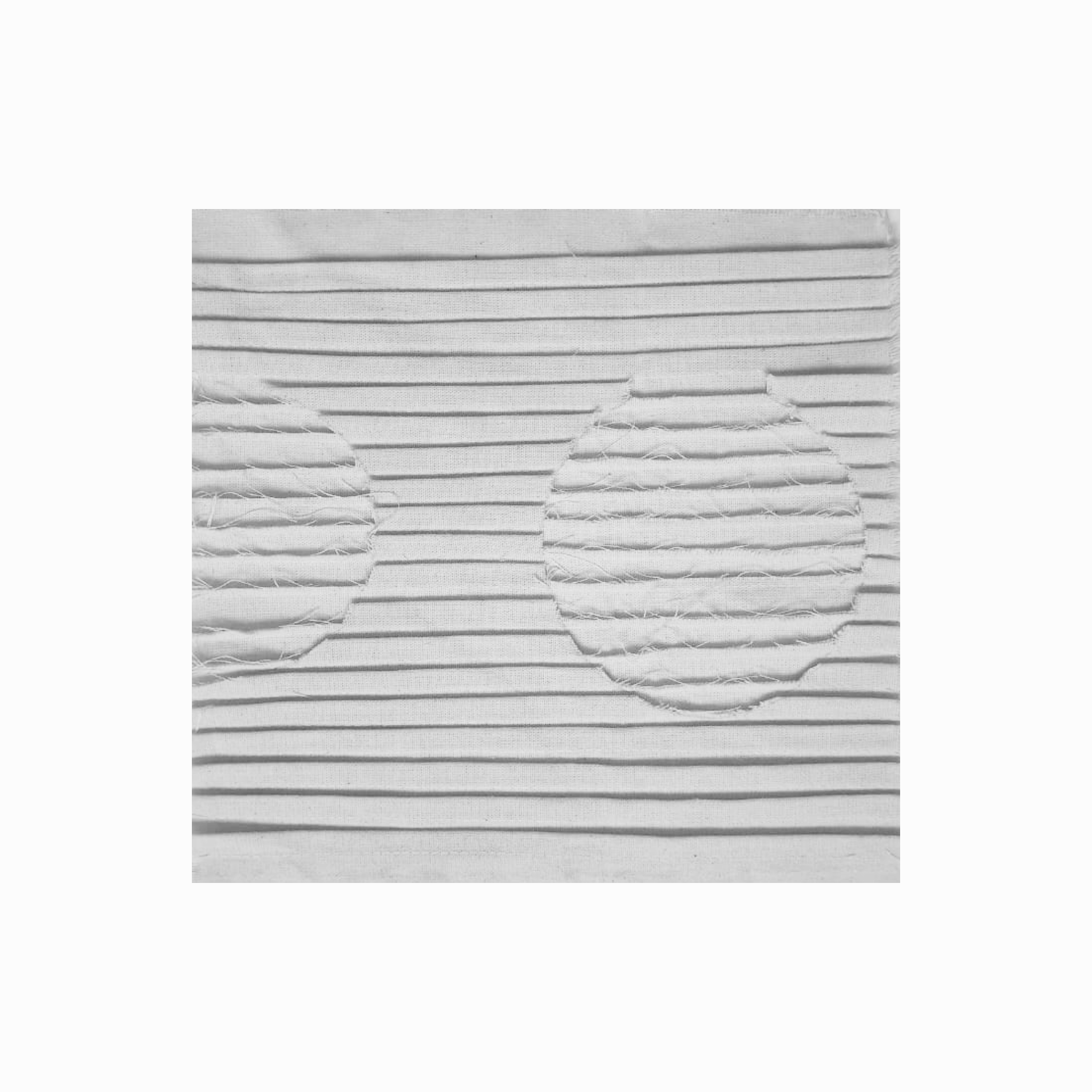
03︎
Reimagining Materials
Inspired by the scenarios, designers developed their own speculative landscapes and began pushing beyond conventional boundaries by exploring how materials could be manipulated, transformed, and re-imagined. This phase expanded creative thinking about material possibilities and encouraged designers to move beyond existing material constraints and conventions.
︎04
Rebuilding Patterns
Designers took simple patterns and radically modified them to create entirely new designs aligned with their speculative concepts. This step translated abstract speculative concepts into tangible design elements, bridging the gap between conceptual thinking and practical application.
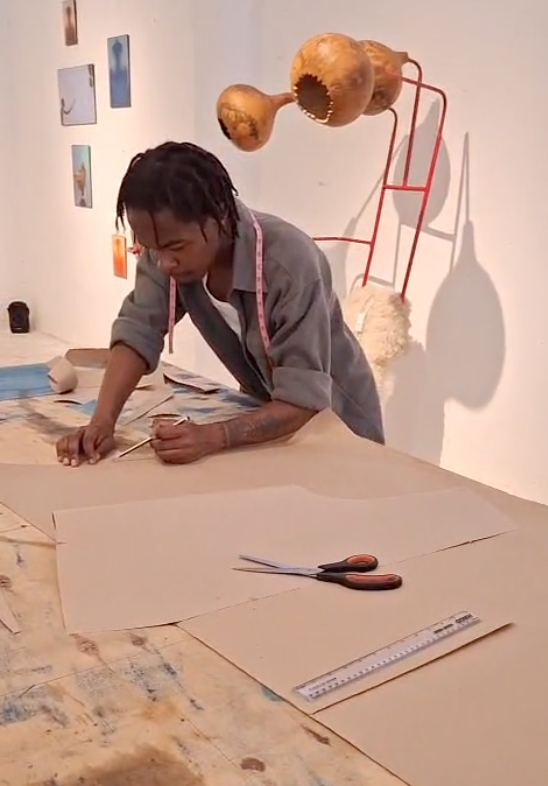
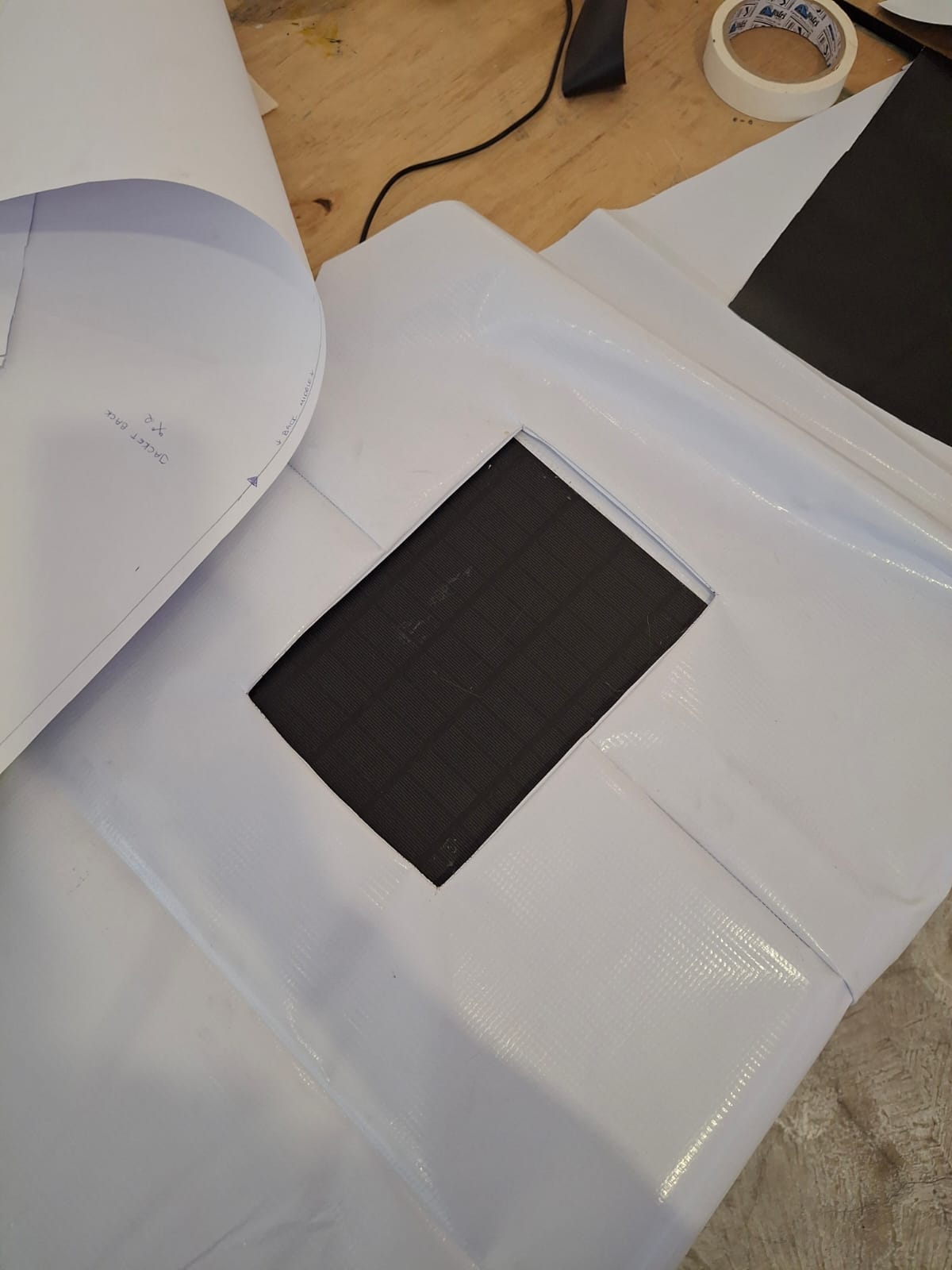
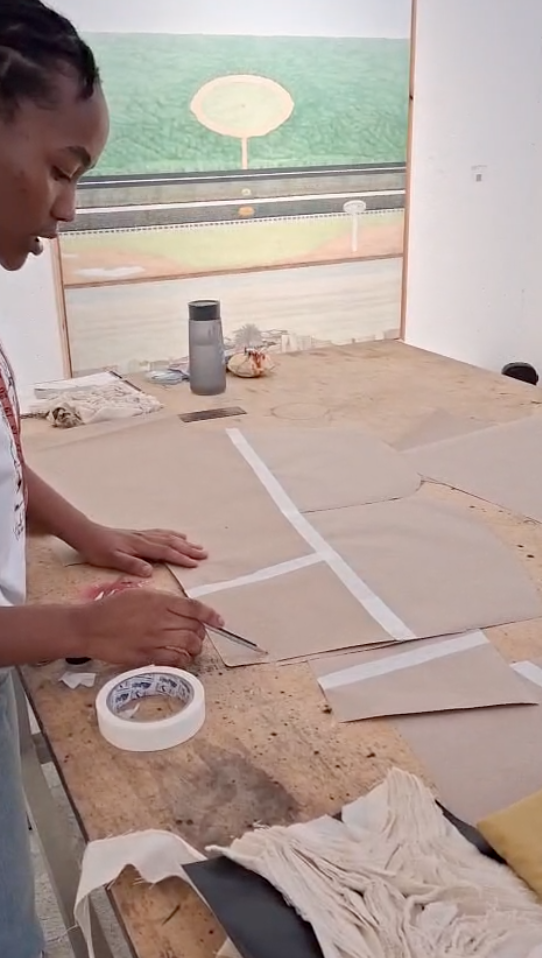
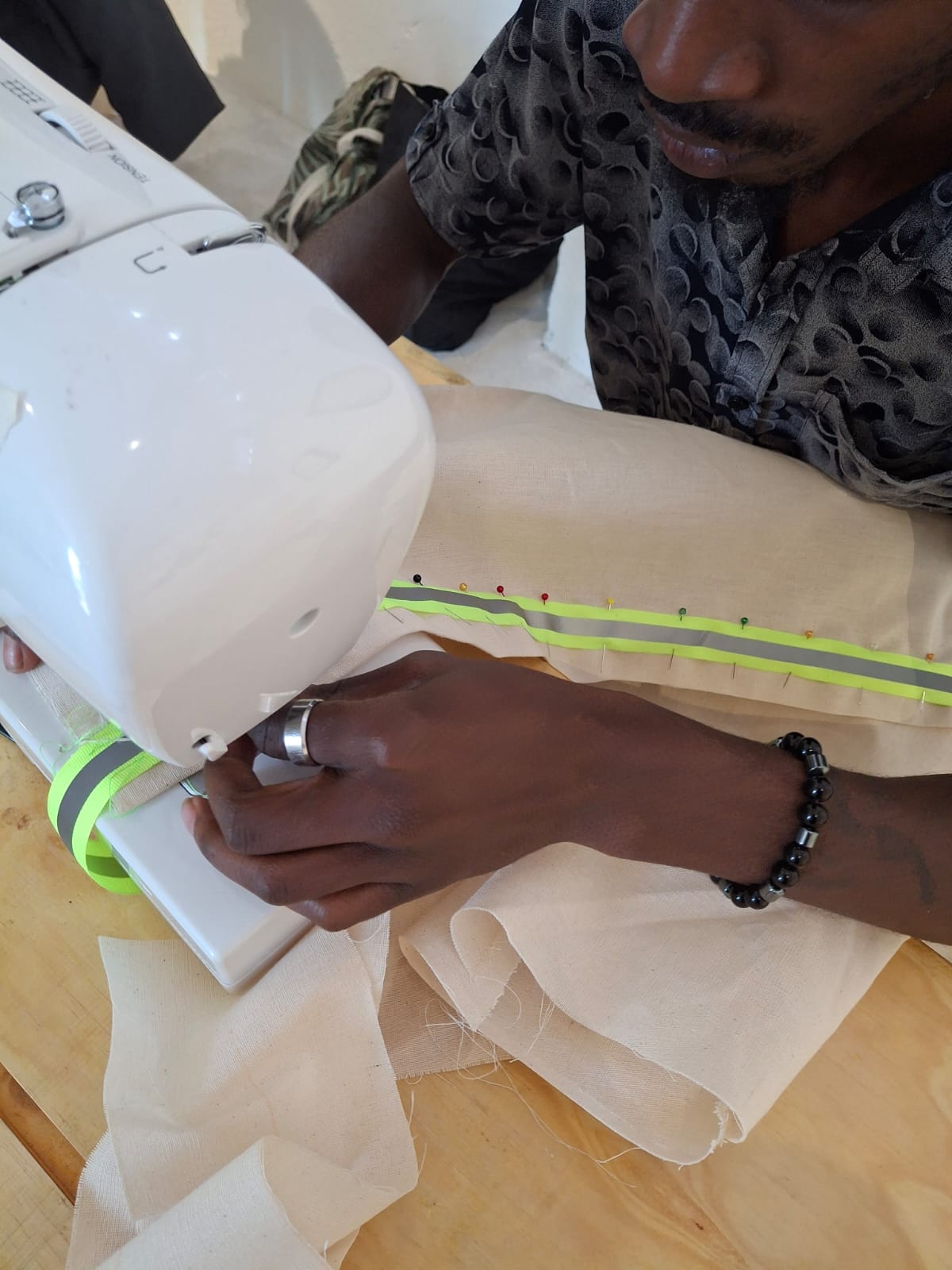


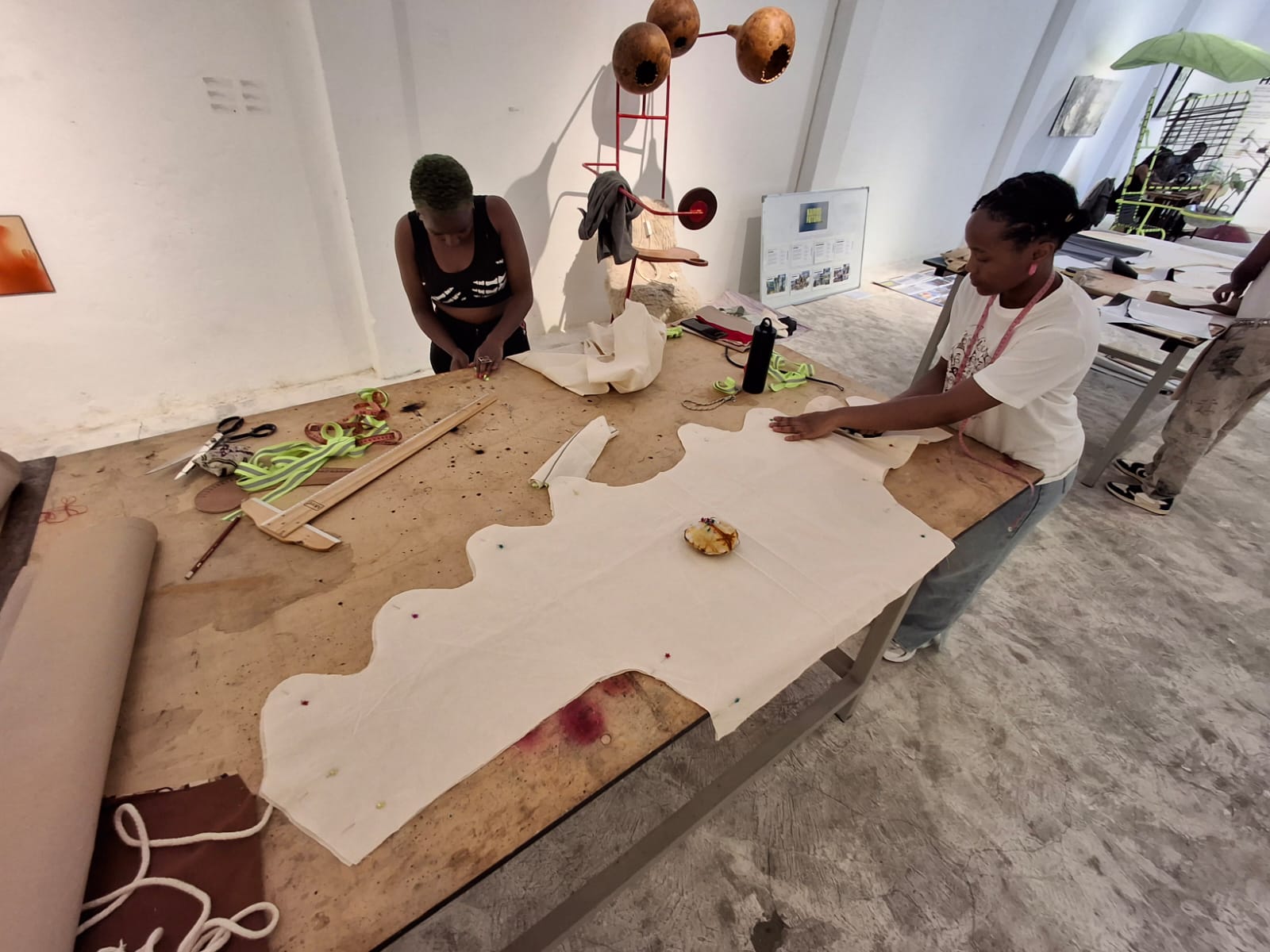
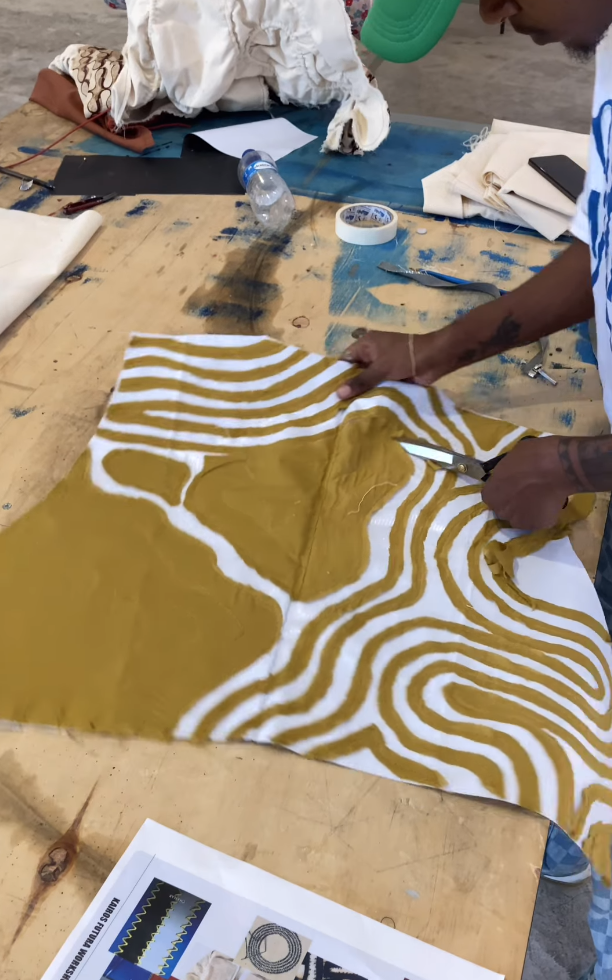
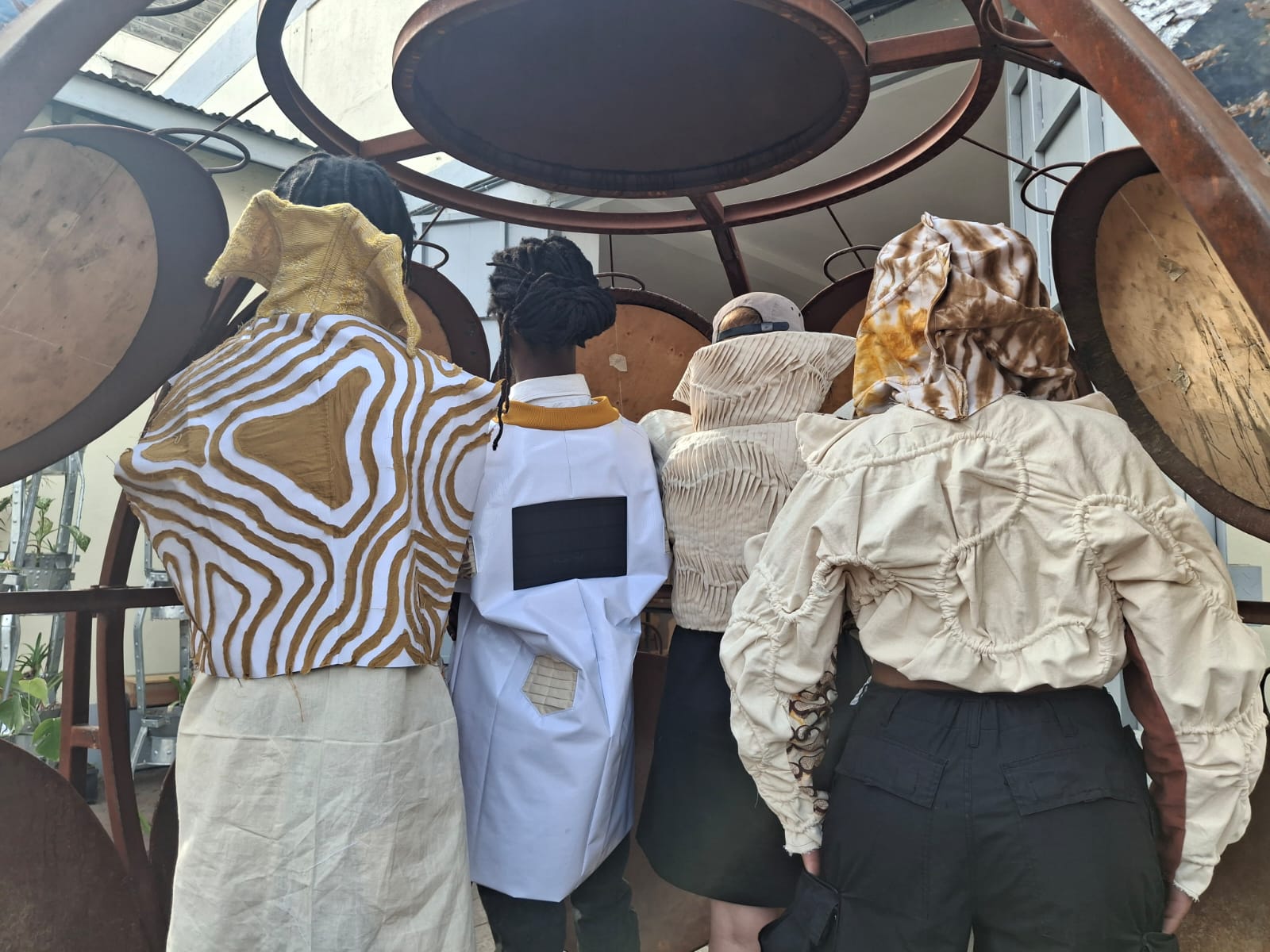
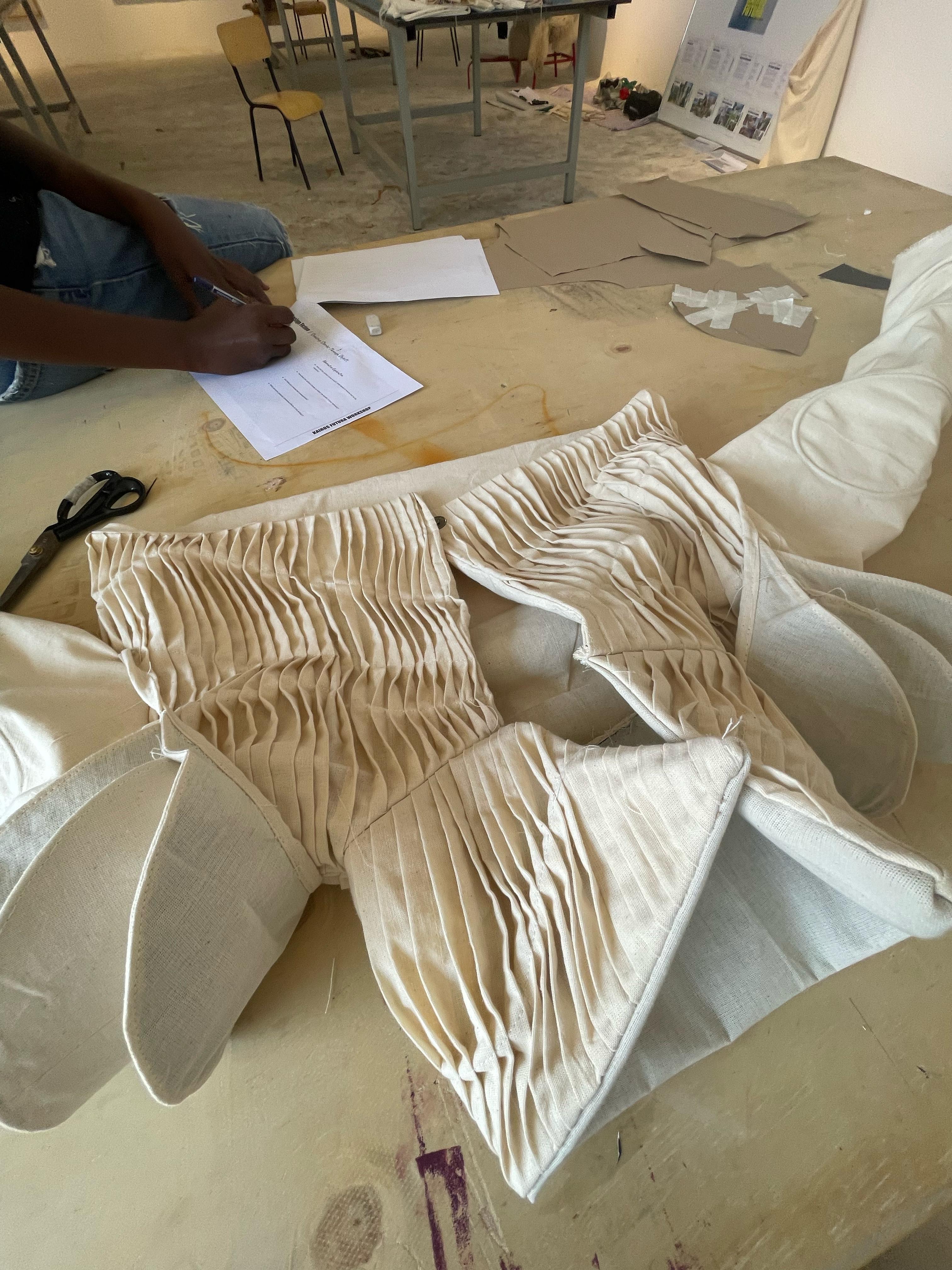

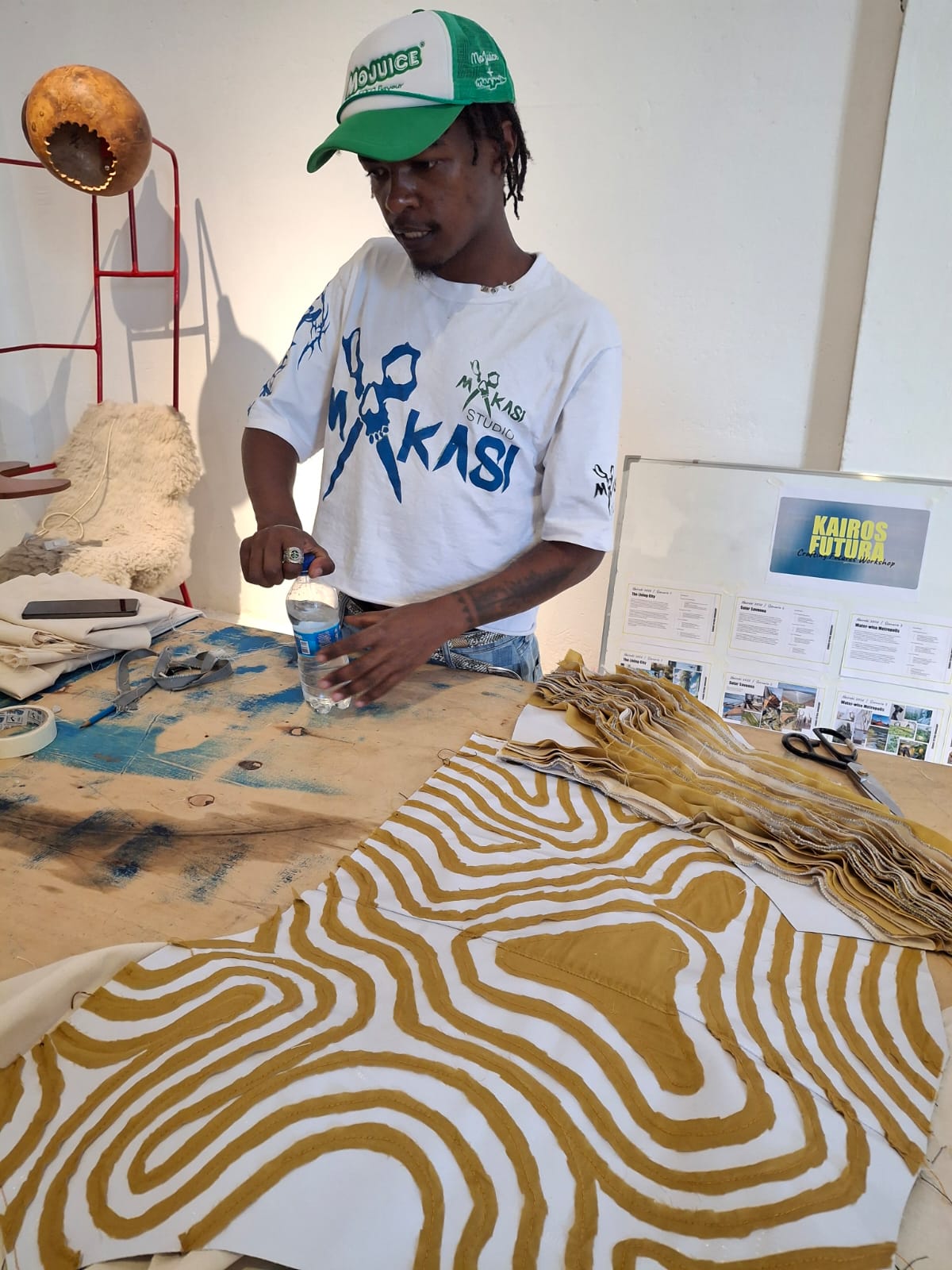

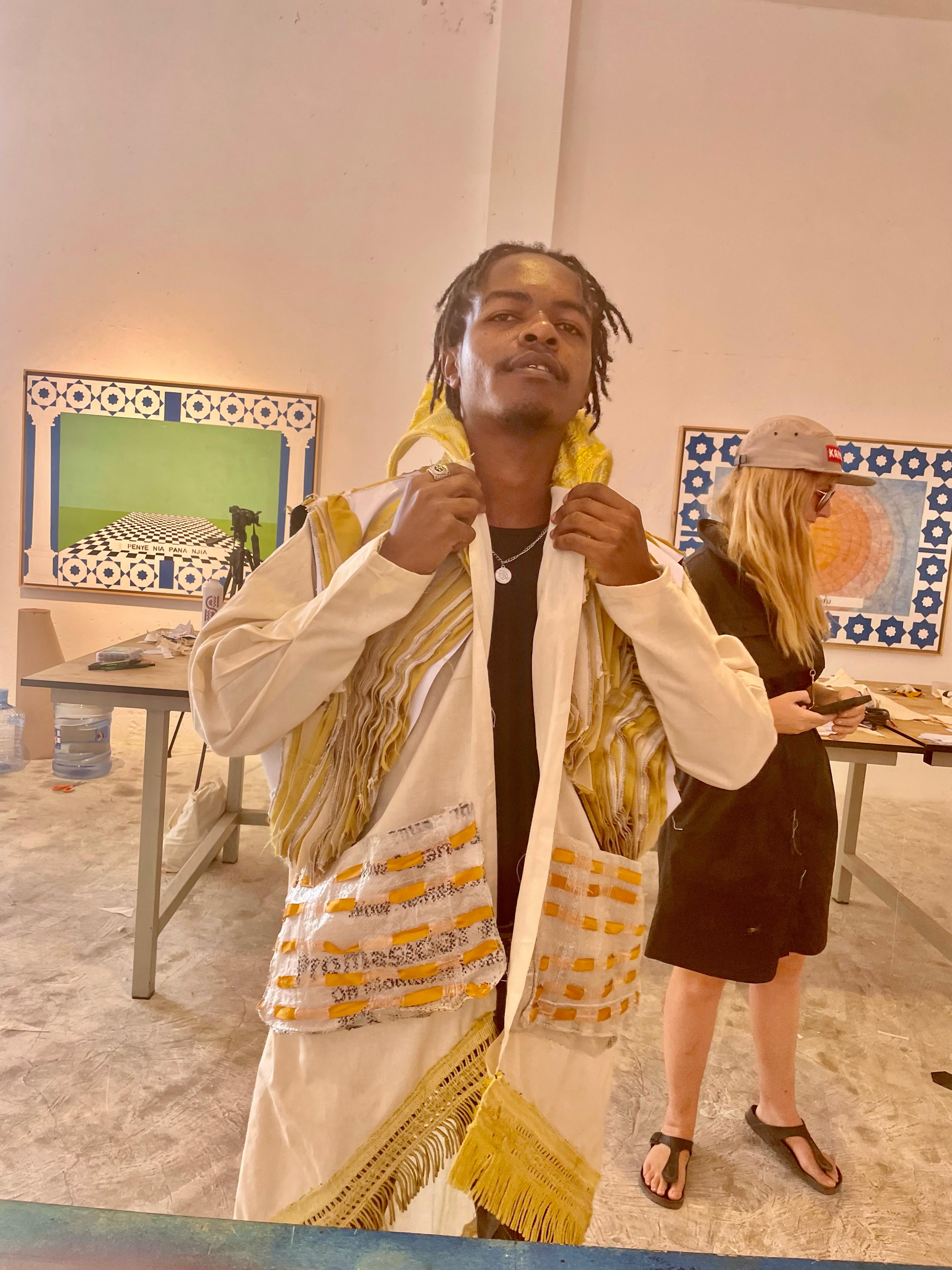
︎05
Bringing Futures to Life
Participants merged their speculative scenarios, material explorations, and pattern innovations into refined concepts and prototypes. This final phase synthesized all previous explorations into coherent design proposals that demonstrate how speculative thinking can lead to innovative, future-oriented solutions.
︎06
Workshop Outcomes
The process resulted in innovative concepts including reflective safety wear, solar panel jackets for personal energy generation, a Gikomba City economy based on material manipulation skills, armor-like protective jackets, adaptive garments for visually impaired users, water-harvesting jackets, and Seed Pirates' garments for transporting botanical diversity.